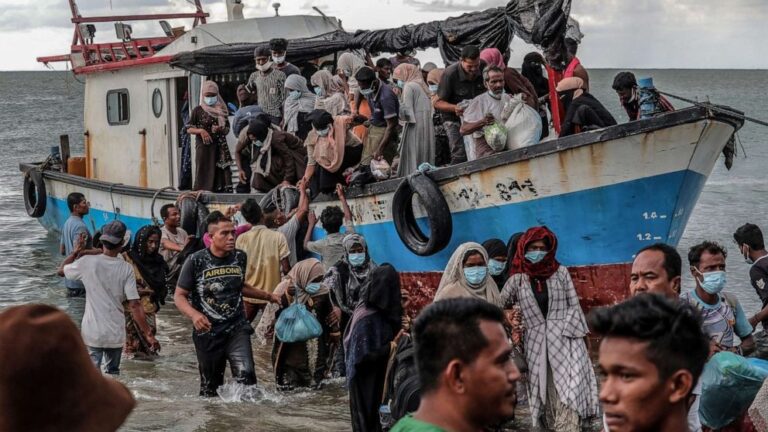The Rohingya Crisis: Current Status and International Response
The Rohingya crisis, now entering its eighth year, remains one of the most pressing humanitarian emergencies in Southeast Asia. Originating from Myanmar's Rakhine State, the crisis has led to the displacement of over a million Rohingya refugees, primarily in Bangladesh, and continues to demand urgent international attention and action.
Current Situation
1. Humanitarian Conditions in Bangladesh
The majority of Rohingya refugees reside in Cox’s Bazar and Bhasan Char, where they face overcrowded camps with limited access to essential services. The 2025 Joint Response Plan (JRP) for the Rohingya Humanitarian Crisis, led by the Bangladesh Government, outlines a need for $934.5 million to support 1.48 million people, including both refugees and host communities. This plan focuses on five key objectives:
Voluntary and sustainable repatriation of Rohingya refugees to Myanmar.
Strengthening protection for refugees, particularly women and children.
Delivering life-saving assistance to populations in need.
Fostering the well-being of host communities, including income generation and access to basic services.
Strengthening disaster risk management and combating the effects of climate change.
2. Refugee Mortality and Risky Journeys
In May 2025, two separate boat incidents in the Bay of Bengal resulted in the deaths of at least 427 Rohingya refugees. These tragedies highlight the extreme desperation leading many to undertake perilous sea journeys in search of safety. The United Nations High Commissioner for Refugees (UNHCR) reported that the boats, which likely departed from refugee camps in Cox's Bazar and Myanmar's Rakhine State, were carrying 514 individuals, with only 87 survivors found.
3. Underfunding of Humanitarian Efforts
Despite the urgent needs, humanitarian efforts are severely underfunded. The UNHCR's 2025 appeal for $383.1 million has only been 30% funded, leading to significant programmatic cuts. Additionally, the World Food Programme (WFP) announced plans to halve food rations to $6 per person per month, exacerbating food insecurity among the refugee population.
International Response
1. Humanitarian Aid
The European Union has allocated €32.3 million to support over 1 million Rohingya refugees in Bangladesh, focusing on food assistance, healthcare, education, and water and sanitation services.
The United States has pledged over $1.9 billion in humanitarian aid for Rohingya refugees and neighboring communities, aiming to address immediate needs and support long-term recovery efforts.
2. Legal Accountability
The International Criminal Court (ICC) is investigating crimes against humanity committed against the Rohingya, including deportation and persecution. In November 2024, the ICC Prosecutor requested an arrest warrant for Myanmar's military leader, Min Aung Hlaing, citing criminal responsibility for these crimes.
3. Diplomatic Engagement
Thailand has called for broader international engagement with Myanmar's junta to resolve the ongoing civil war and address the humanitarian crisis. ASEAN's 2021 peace plan has seen limited progress, but renewed efforts, including dialogues with both the junta and the opposition National Unity Government, are underway.
Challenges Ahead
Repatriation Efforts: Safe, voluntary, and dignified return of refugees to Myanmar remains elusive due to ongoing violence and lack of guarantees for their safety and rights.
Protection Concerns: Women and children face heightened risks of exploitation, trafficking, and violence within the camps.
Environmental Vulnerabilities: The refugee camps are prone to natural disasters, including floods and cyclones, exacerbating the already precarious living conditions.
The Rohingya crisis is a complex humanitarian emergency requiring sustained international commitment and coordinated action. While aid and diplomatic efforts continue, the path to a lasting solution lies in addressing the root causes of displacement, ensuring accountability for crimes committed, and creating conditions for the safe and voluntary return of refugees to Myanmar.
Thank you for reading! Visit us anytime at Myanmar.com for more insights and updates about Myanmar

 Policy Dilemmas and Stability: Bangladesh’s Approach to the Arakan Army
Policy Dilemmas and Stability: Bangladesh’s Approach to the Arakan Army
 Myanmar Junta Chief to Make Second Visit to China Since 2021 Coup
Myanmar Junta Chief to Make Second Visit to China Since 2021 Coup
 Trump administration deported Asian immigrants to South Sudan
Trump administration deported Asian immigrants to South Sudan
 RUSSIA, MYANMAR SIGN AGREEMENT ON PROMOTION, PROTECTION OF INVESTMENT
RUSSIA, MYANMAR SIGN AGREEMENT ON PROMOTION, PROTECTION OF INVESTMENT
 More than 200 killed in at least 243 military strikes across Myanmar since the earthquake.
More than 200 killed in at least 243 military strikes across Myanmar since the earthquake.
 THE ‘GERMAN CONNECTION’ IN MYANMAR’S CIVIL WARS
THE ‘GERMAN CONNECTION’ IN MYANMAR’S CIVIL WARS
